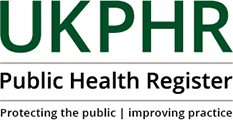Scotland’s report of the Public Health Review
By Professor Bryan Stoten, UKPHR Chair
I read the report of Scotland’s recent Public Health Review with enormous satisfaction. It seems to me that the report’s conclusions and recommendations fit comfortably with UKPHR’s ambitions. Ambitions, not just for a successful future for UKPHR as an effective regulator of the public health workforce, but also for the public health workforce to do the best possible job of improving the public’s health and wellbeing and reducing inequalities. In England, of course, this lies at the heart of Simon Stevens’ 5-year Forward View.
The Scottish Review says that both national and local perspectives are important, and there needs to be greater coordination between these different levels. This standpoint reflects the ongoing tensions brought about by devolution – both between and within the four countries of the UK. In this context, UKPHR is committed to working with politicians and civil servants in all the component parts of “the broader state” to help achieve positive health outcomes.
At UKPHR we certainly share the review’s recognition of the need for greater visibility and a clearer identity for the public health function. This is true for all the UK, not just in Scotland. The multidisciplinary nature of public health practice makes for a healthy diversity of roles and approaches. It can aid holistic planning, population based interventions and bringing to bear relevant expertise. But it also recognises that public health professionals are dispersed throughout the system, making it difficult for local and national politicians and policy makers easily to identify them and the contribution they make. Addressing that issue will surely depend on developing a leadership cadre, high profile communication and awareness of the evidence demonstrating the powerful impact on health outcomes public health interventions can make.
The report draws attention to prevention as a large-scale strategic challenge. In public health we have always argued for an upstream approach to reducing demand on health and social care services. The public instinctively gets it that “prevention is better than cure”. Demographic change, medical advances and the ongoing restrictions on public funding are adding ever-more pressure onto Scotland’s – and wider UK’s – NHS and local authority delivery of health and social care services. Simon Stevens has made that case to general acceptance. There has surely never been a wider open goal facing the public health workforce – so now let our multi-disciplinary workforce step forward and give a lead. “Health in every policy”, engagement of the wider workforce (including an army of unpaid carers) and making every contact count (MECC) has the potential to deliver enormous health gains and reduce pressures on every aspect of our welfare state.
The Scottish report is warmly to be welcomed for the support it gives to the public health workforce. I completely join in with the call for its strategic leaders, the directors of public health and their consultants, to be given the tools and positions, in relation to decision-making and partnership working, they need to give that strategic lead. But we know that the role of DsPH is changing and will continue to change such that it is now essential to have regard to the education and training needs of these leaders of the public health workforce. It was also a pleasure to read so many positive and constructive comments about practitioner registration.
The desirability of clear statements around competence, standards and career progression is incontrovertible if we seriously want to attract people with the greatest skill and talent into public health practice. Even as we wait for a response to the specific recommendation that there should be a consultation about national practitioner registration coverage across Scotland, more and more NHS Boards and their partners are joining the existing scheme for practitioner registration based in West of Scotland. That is a trend in England and, notably, Wales too. Yet Scotland’s voice is clearer, less ambiguous and more prescient than any other in the field today. A great opportunity, too many of which have passed and been missed. This time we must seize it and build the workforce all our nations need.



Comments are closed.